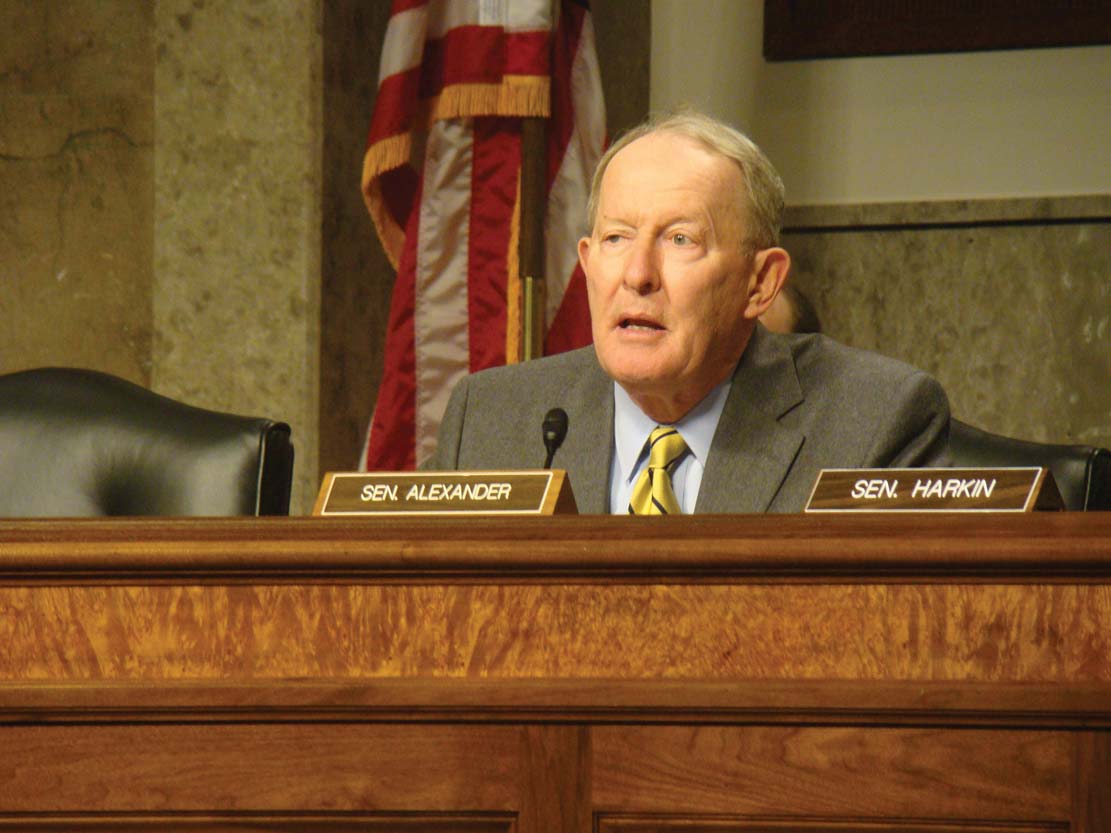By U.S. Sen. Lamar Alexander
The United States is home to most of the world’s best universities. Our 6,000 colleges and universities—from community colleges to doctoral-granting research institutions and residential liberal arts colleges—are our secret weapons for innovation. That innovation is the reason we have just 5 percent of the population but produce 25 percent of all the wealth in the world.
Our future rests in reasserting the greatness of these institutions by maintaining their autonomy, reducing their cost, reducing federal regulations that threaten their success, and doubling funding for advanced research.
First, we must preserve our system of having federal education dollars follow students to the school of their choosing. This drives competition among schools for tuition dollars and for federal research funds.
“Our future rests in reasserting the greatness of these institutions by maintaining their autonomy, reducing their cost, reducing federal regulations that threaten their success, and doubling funding for advanced research.”Second, Congress must repeal the unfunded federal Medicaid mandates that force states to spend money on Medicaid that would otherwise go to higher education. This has dramatically reduced state support for universities, which have raised tuition in an effort to maintain quality. In Tennessee, state spending on Medicaid increased 15.8 percent in 2011, while state spending on higher education decreased 15 percent. This is the main reason why, 30 years ago, the state paid 70 percent of a student’s cost to attend the University of Tennessee; today students pay 70 percent of the cost. At the same time, universities should look for ways to save money, such as using their entire campus during summers, offering three-year degrees to some students and reforming teacher tenure.
Third, Congress should reduce the stack of federal regulations and mandates from Washington that undermine student choice and institutional autonomy and soak up tuition dollars intended for educating students and producing valuable research. The former president of Stanford once estimated that 7 cents out of every tuition dollar went towards complying with federal reporting requirements.
Fourth, Congress should double funding for advanced research. It is hard to think of many technological innovations since World War II that have not had a boost from government-supported research.
The future of higher education rests in innovation. Giving our colleges and universities a chance to prosper again will allow us to reassert the greatness of our nation’s universities.
Lamar Alexander is a former Tennessee governor, president of the University of Tennessee and U.S. Education Secretary. He was elected to the U.S. Senate in 2002.



